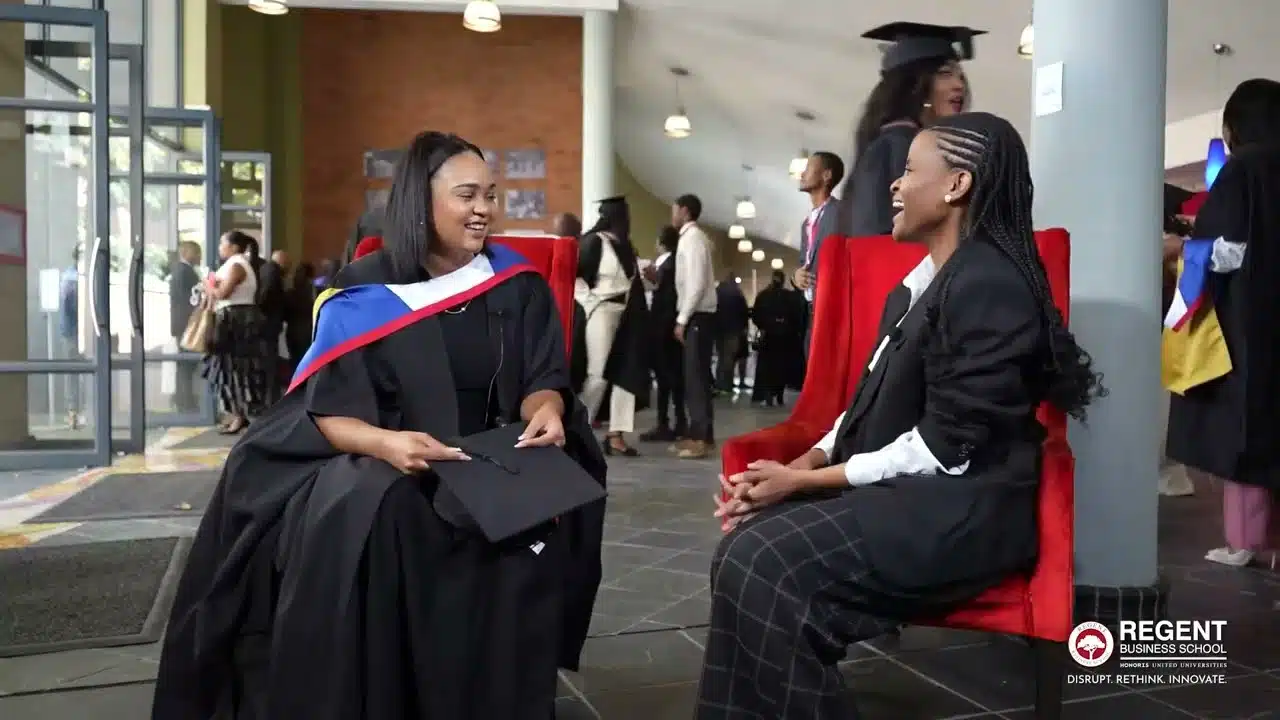Graduation is often seen as the finish line, but for many, it is just the beginning. In this article, Pamela Nomzaza, an Academic at Regent Business School, explores how academic achievement can be transformed into real career momentum. Drawing on years of experience mentoring graduates and working closely with industry, the author challenges the idea that a qualification alone is enough. Instead, they offer a fresh perspective on how to turn academic effort into professional impact, with practical insights for both recent and mature graduates ready to move forward with purpose.
The moment a graduate walks across the stage, heart pounding, gown swaying, certificate in hand, is more than ceremonial. It marks the visible end of a demanding and deeply personal process. Years of study, late nights, postponed plans and hard-won insights are distilled into that single walk. Families cheer, cameras flash and for a brief time, the world stands still.
But beyond the applause, a quieter reality waits. What now?
This question echoes through corridors after the ceremony ends. It surfaces in coaching sessions, at networking events and often in the privacy of our own thoughts. It is not confined to first-time graduates. Mature students, those returning after years of work, caregiving or personal change, ask it too, often with more urgency and sharper purpose.
Graduation is too often seen as a finish line. In reality, it is a springboard. One of the most significant inflection points in a person’s life, it marks the beginning of a new kind of challenge: translating knowledge into momentum.
From Certificate to Action
A degree certifies what has been achieved, but it does not capture the full depth of that achievement. The real transformation happens in less visible moments. Pushing through difficult theories. Collaborating under pressure. Speaking up when silence would have been easier. These moments signal more than academic success. They reflect personal growth, professional readiness and adaptive thinking. When used intentionally, they become fuel.
And fuel creates movement.
Graduates who gain traction are not necessarily those with the highest marks or the most prestigious credentials. They are the ones who know how to apply what they have learned. The candidate who connects academic insights to business challenges. The employee who returns to the office with a sharper lens and starts identifying gaps or mentoring others. The founder who uses research from a final-year project to refine their business model.
What sets them apart is not knowledge in isolation, but the ability to apply it with clarity, agility and intent.
Mature Graduates and the Power of Experience
Curiosity plays a key role. Those who keep learning after graduation tend to move faster and further. They are not content with what they know. They ask questions, seek feedback and remain open to challenge. In industries shaped by constant disruption, standing still is not an option. Markets shift, technologies evolve, and customer expectations change. Career momentum demands intellectual momentum.
This is especially true for mature graduates. They bring something to the table that cannot be taught experience. When paired with structured learning, experience becomes an advantage. Whether aiming to upskill, shift direction or strengthen leadership, mature students often graduate with a clearer sense of purpose and a stronger connection between theory and real-world application.
Postgraduate study, whether an MBA, a specialised master’s or an executive diploma, can help structure that transition. Not because it guarantees immediate rewards, but because it creates an environment where goals are sharpened, skills are deepened, and confidence is rebuilt. Many graduates use this time to reframe their careers, move into more meaningful roles or finally step into sectors that once felt out of reach.
Building Momentum Beyond the Stage
Graduation is not a strategy in itself. It is a signal, a visible marker of potential that must be followed by intentional, ongoing action. This is where professional identity becomes essential. A qualification may open the door, but it is your ability to articulate your value, demonstrate insight and contribute meaningfully that determines whether you remain in the room and what opportunities follow.
This goes far beyond updating a CV. It means developing a presence that reflects your voice and your strengths. Online and offline, across platforms and conversations. It means building real connections with mentors and peers, contributing to shared knowledge and owning your story without exaggeration or apology.
I often tell my students: your degree opens the door. Your thinking, your curiosity and your character determine what happens next.
Uncertainty is part of the process. The months after graduation can feel disjointed. Applications go nowhere. Offers fall through. Confidence dips. That in-between space, the one where structure fades and direction feels unclear, is where momentum often begins.
It rarely starts with something grand. More often, it starts with a quiet but intentional choice. Applying for a role that feels slightly out of reach. Attending an event where you know no one. Reaching out to someone whose work you admire. Signing up for a course that strengthens a weak spot. Each decision builds on the last.
Success is not a formula. It is a chain of deliberate actions, guided by purpose rather than perfection. Believing that your background, academic, professional and personal, has value. Believing that your voice matters.
Graduation is not a peak. It is a beginning. It is a visible marker that you are ready, not finished. Your future is not something to wait for. It is something to shape.
So, take a moment to celebrate what you have done. Then take a breath and begin again with purpose.

